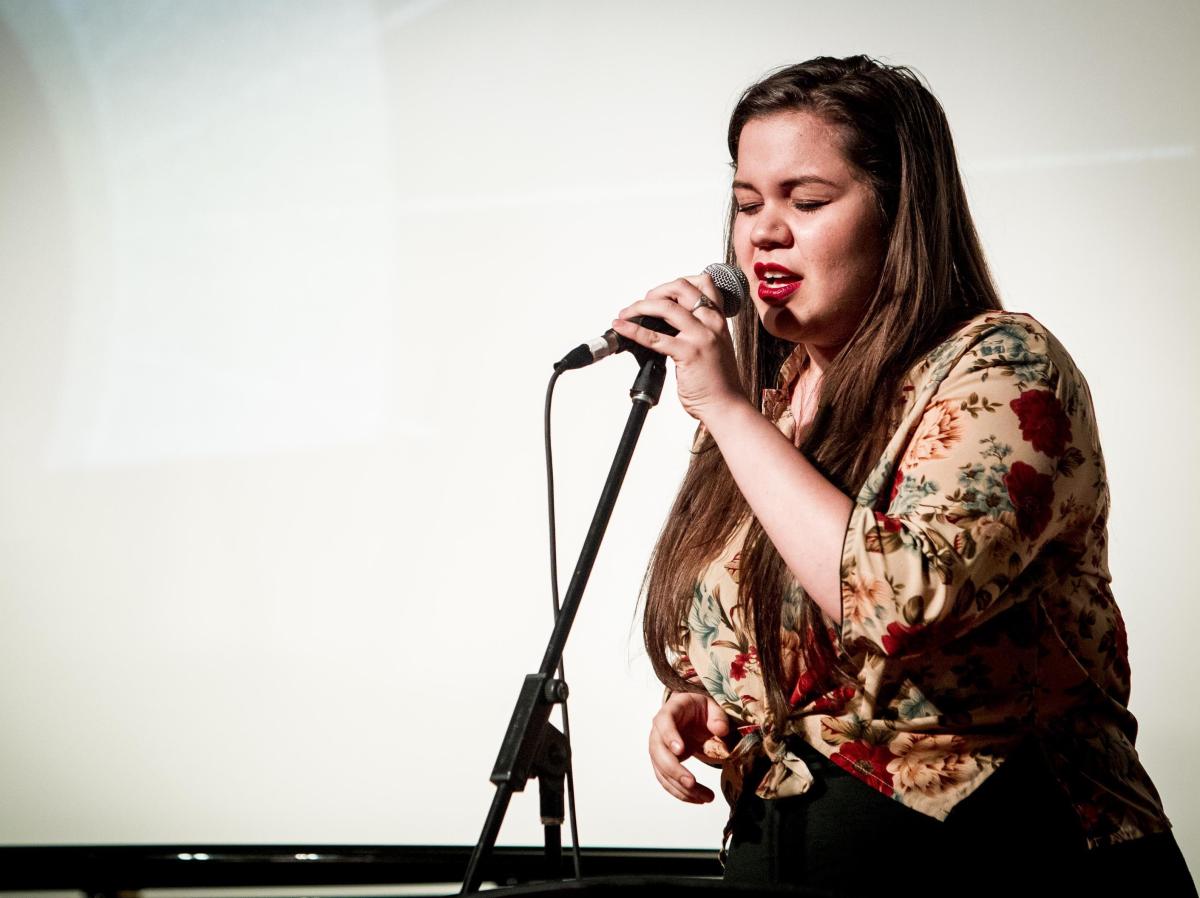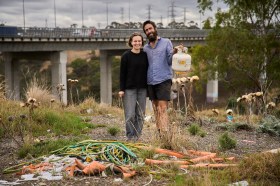Amy Dowd, Bachelor of Fine Arts (Contemporary Music) student.
The Wilin Centre is a bridge between the ancient traditions of Indigenous arts and their contemporary expression in the Australian arts scene.
As part of the Victorian College of the Arts and the Melbourne Conservatorium of Music, the Centre has been providing Indigenous artists with pathways into the music industry, visual and performing arts for the past 10 years.
Placed in the heart of Melbourne’s arts precinct, the Wilin Centre for Indigenous Arts fosters innovation in the research, development, advocacy and presentation of Indigenous arts.
The Wilin Centre welcomed a new Head of Curriculum and Programs this year, award winning screenwriter and Indigenous artist Richard Frankland. Frankland has a long history as a musician and filmmaker, with seven albums and credits in more than forty films. He has also worked as a Field Officer during the Royal Commission into Aboriginal Deaths in Custody.
Frankland said his attitude towards Indigenous education was to teach ancient practice and theoretical components along with a focus on contemporary studies.
‘I think there is a new way to preserve old skills and old knowledge and I think that’s vital. I think also though that we need to learn about the contemporary. One of the things that I think is vital is to learn about Indigenous Australian in a contemporary sense,’ said Frankland.
The Wilin Centre provides support to Indigenous students and artists through relocation assistance, referrals to specialist Indigenous organisations, pastoral support, financial assistance, academic and personal advocacy, advice and advocacy regarding student allowances such as Abstudy, along with promotion and development of Indigenous scholarships and grants.
Postgraduate programs that can be undertaken include areas covering community cultural development, music, dance, film and television, visual art, writing and production.
The Centre also identifies, recruits and supports potential and practicing Indigenous artists to study and refine their skills offering an artist in residence program, which this year announced the Hutchinson Indigenous Residency, supporting the voice of South Eastern Indigenous culture and knowledge.
‘When you’ve got art, you’ve got voice. When you’ve got freedom, you’ve got responsibility. Wilin hopes to provide the opportunity for people to express themselves with their art,’ said Frankland. ‘It’s a great opportunity and we’re really keen to take the opportunity up and run with it.’
Potential applicants should contact the centre in early July/August to avoid missing the application deadlines.
For more information about the Wilin Centre visit The University of Melbourne or the Wilin Centre on Facebook.





